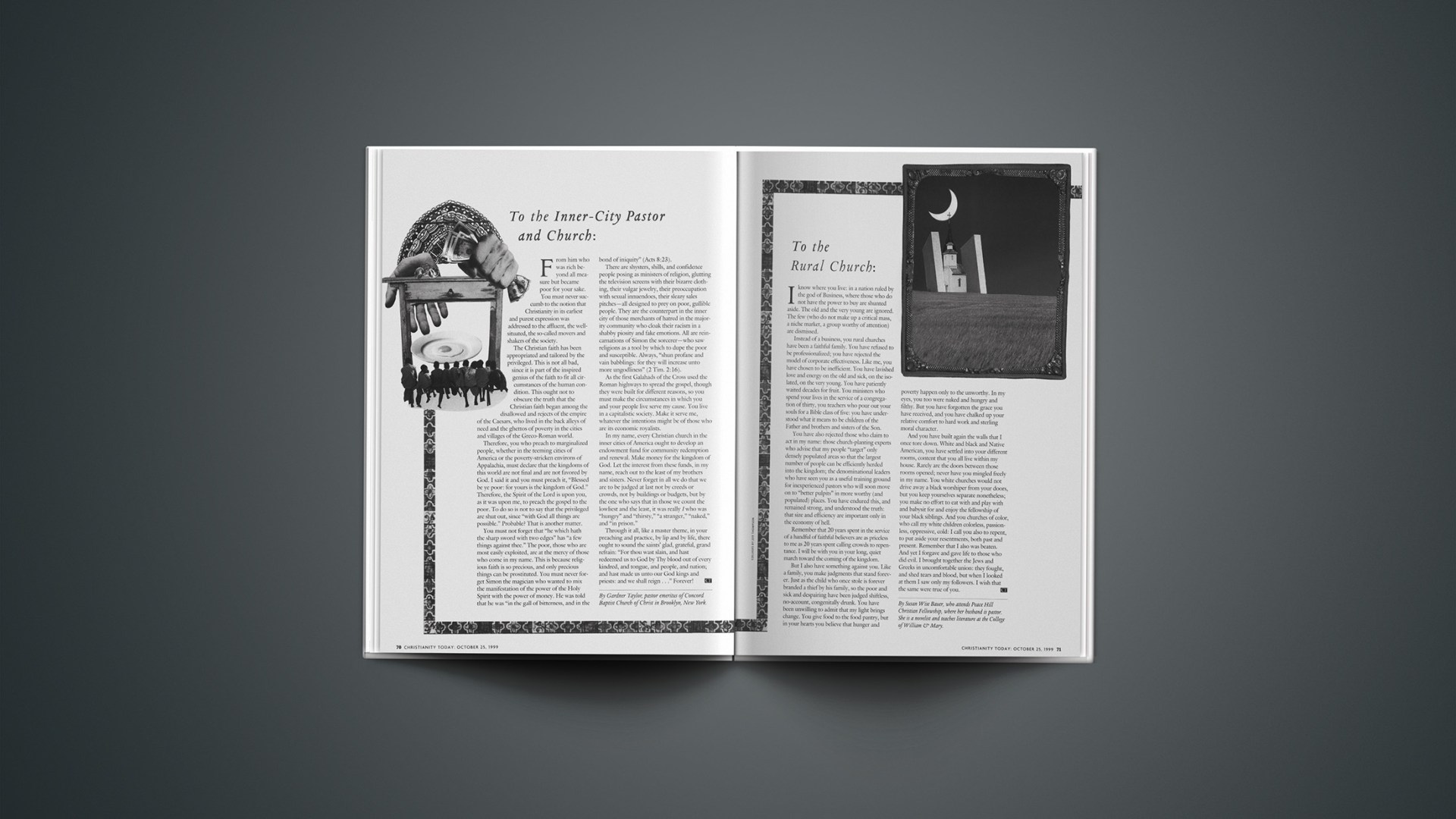From him who was rich beyond all measure but became poor for your sake.
You must never succumb to the notion that Christianity in its earliest and purest expression was addressed to the affluent, the well-situated, the so-called movers and shakers of the society.
The Christian faith has been appropriated and tailored by the privileged. This is not all bad, since it is part of the inspired genius of the faith to fit all circumstances of the human condition. This ought not to obscure the truth that the Christian faith began among the disallowed and rejects of the empire of the Caesars, who lived in the back alleys of need and the ghettos of poverty in the cities and villages of the Greco-Roman world.
Therefore, you who preach to marginalized people, whether in the teeming cities of America or the poverty-stricken environs of Appalachia, must declare that the kingdoms of this world are not final and are not favored by God. I said it and you must preach it, “Blessed be ye poor: for yours is the kingdom of God.” There fore, the Spirit of the Lord is upon you, as it was upon me, to preach the gospel to the poor. To do so is not to say that the privileged are shut out, since “with God all things are possible.” Probable? That is another matter.
You must not forget that “he which hath the sharp sword with two edges” has “a few things against thee.” The poor, those who are most easily exploited, are at the mercy of those who come in my name. This is because religious faith is so precious, and only precious things can be prostituted. You must never forget Simon the magician who wanted to mix the manifestation of the power of the Holy Spirit with the power of money. He was told that he was “in the gall of bitterness, and in the bond of iniquity” (Acts 8:23).
There are shysters, shills, and confidence people posing as ministers of religion, glutting the television screens with their bizarre clothing, their vulgar jewelry, their preoccupation with sexual innuendoes, their sleazy sales pitches—all designed to prey on poor, gullible people. They are the counterpart in the inner city of those merchants of hatred in the majority community who cloak their racism in a shabby piosity and fake emotions. All are reincarnations of Simon the sorcerer—who saw religions as a tool by which to dupe the poor and susceptible. Always, “shun profane and vain babblings: for they will increase unto more ungodliness” (2 Tim. 2:16).
As the first Galahads of the Cross used the Roman highways to spread the gospel, though they were built for different reasons, so you must make the circumstances in which you and your people live serve my cause. You live in a capitalistic society. Make it serve me, whatever the intentions might be of those who are its economic royalists.
In my name, every Christian church in the inner cities of America ought to develop an endowment fund for community redemption and renewal. Make money for the kingdom of God. Let the interest from these funds, in my name, reach out to the least of my brothers and sisters. Never forget in all we do that we are to be judged at last not by creeds or crowds, not by buildings or budgets, but by the one who says that in those we count the lowliest and the least, it was really I who was “hungry” and “thirsty,” “a stranger,” “naked,” and “in prison.”
Through it all, like a master theme, in your preaching and practice, by lip and by life, there ought to sound the saints’ glad, grateful, grand refrain: “For thou wast slain, and hast redeemed us to God by Thy blood out of every kindred, and tongue, and people, and nation; and hast made us unto our God kings and priests: and we shall reign … ” Forever!
Copyright © 1999 Christianity Today. Click for reprint information.










